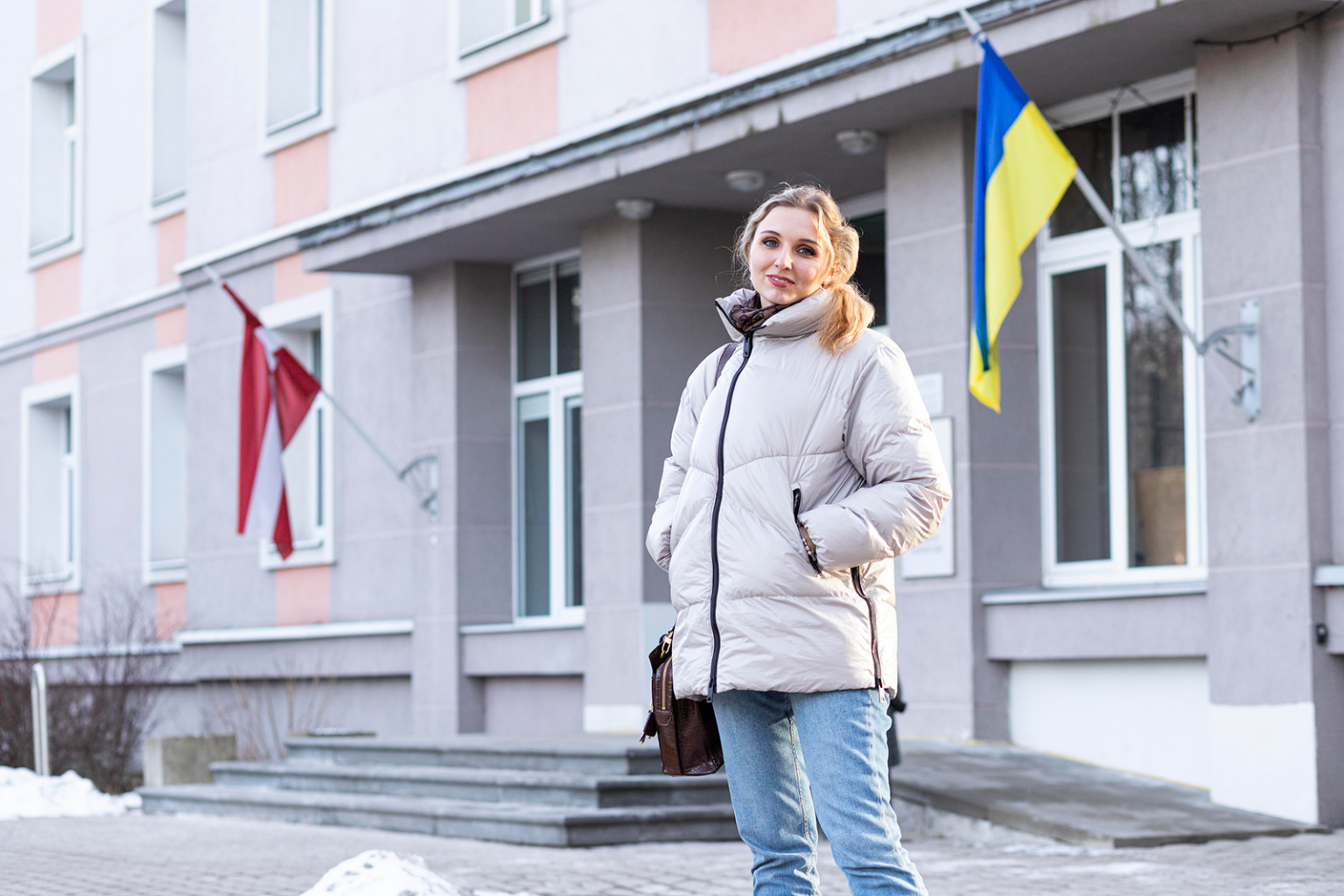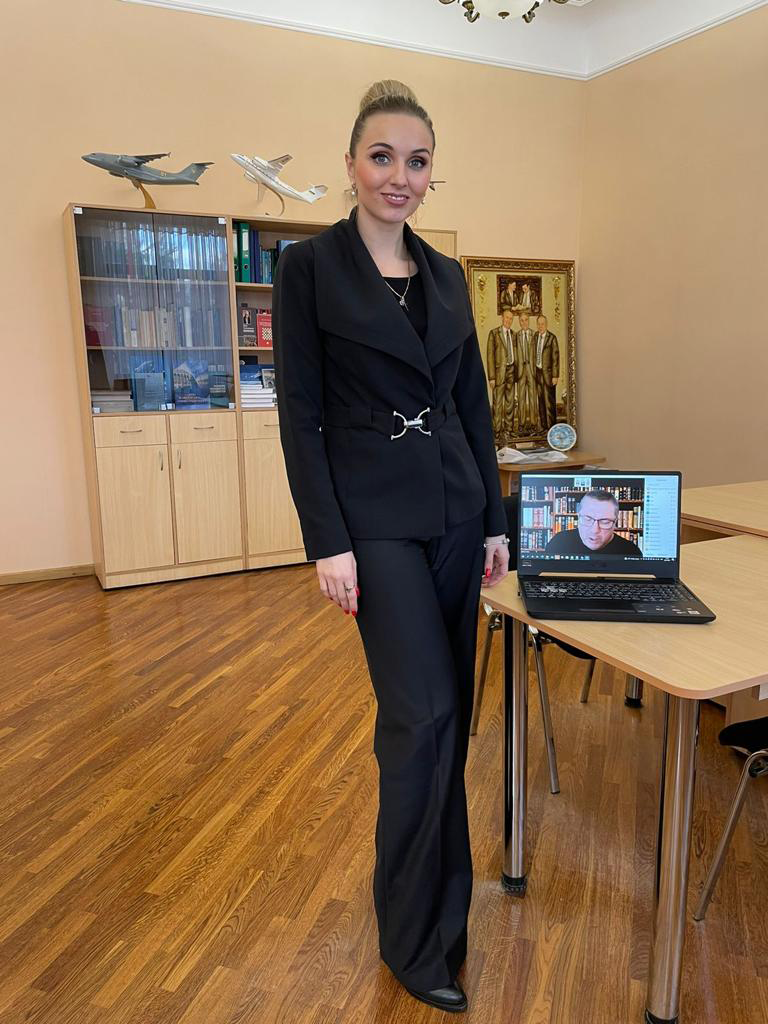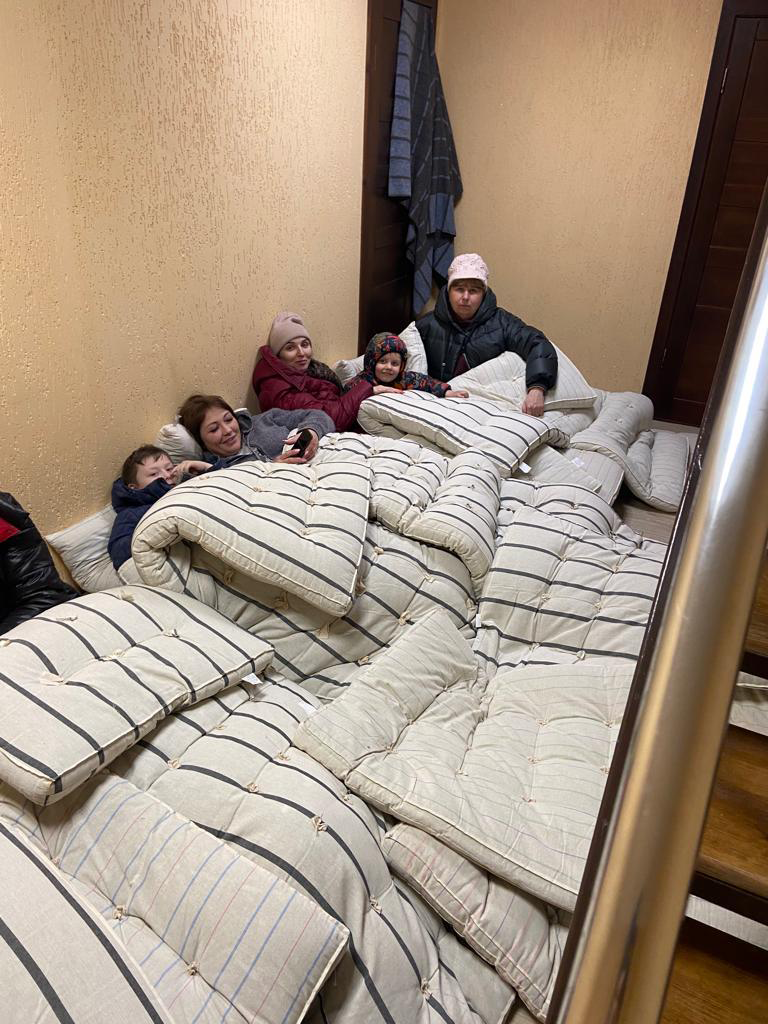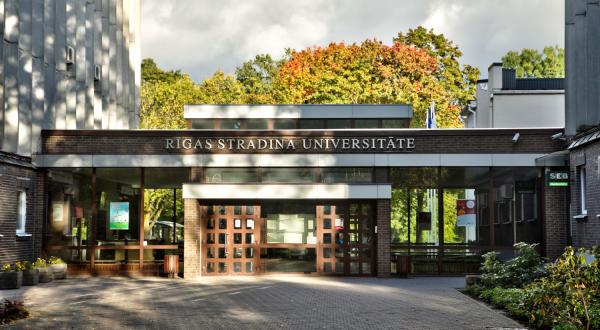An Academic Safe Haven: RSU Welcomes First Ukrainian Researcher
The first Ukrainian researcher to be sheltered at Rīga Stradiņš University (RSU) during the war arrives at the university.
The day before the first bombs fell near Kharkiv, Olena Agapova was in her office at the National Aerospace University where she had just become the Director of the Centre for Innovation and International Cooperation. It was an inspiring day during which she had a meeting with her Greek peers on Zoom to plan new cooperation projects. By the next morning, everything, not least her professional aspirations, were put on hold indefinitely. With Russia amassing troops just 80 kilometres away at the border, anxiety had been in the air for some time in Ukraine’s second largest city.
‘No one in Kharkiv believed that their neighbours would directly target and destroy a city where every fourth person is Russian,’ says Olena the morning after arriving in Riga.
She is the first Ukrainian researcher that RSU has invited to spend these troubling times under its wing. Olena was accompanied by her parents, her three-year-old son Gleb, and her brother’s wife with two daughters.

Ukrainian flags greeted Olena and her family all the way from the Polish border to the RSU student hostel in Pārdaugava
A missile in the heart of Kharkiv
Olena holds a doctorate in administrative and international law. As a young researcher at the Kyiv Scientific Research Institute of Forensic Expertise, she noticed a call for Latvian-Ukrainian cooperation projects in 2019 and started looking for cooperation partners in Riga. Only six projects out of around 350 were approved at the time, including "Remote Education Resource: Criminalistics as a Science where RSU was working together with the Hon. Prof. M.S. Bokarius Forensic Science Institute. This was also the beginning of a professional relationship with the RSU Faculty of Law, which over the course of two years had grown into such a strong friendship that her peers from RSU had been calling Olena every day since the Russian invasion to invite her to come to Riga. Receiving these calls in a bomb shelter meant a lot to her and gave her strength. Like many other Ukrainians, however, for a long time Olena refused to believe that the aggression launched by the Kremlin would not be stopped soon. Olena’s family only decided to leave their hometown on 1 March when missiles landed in Independence Square, the heart of Kharkiv. ‘Yes, the Russian army mostly targets strategic objects, but civilians are killed and wounded “as collateral damage” and it means absolutely nothing to them,’ says Olena.
Kharkiv – Myrhorod – Bershad – Riga
After sticking large signs saying ‘діти’ (‘children’) on both family cars, the Agapovs started their journey to the west of the country, to Myrhorod in the Poltava region. People were being evacuated in droves, and it took them 11 hours to travel 200 kilometres. They prepared to spend a few days in an unheated garden hut near Myrhorod that had been recommended to them by acquaintances. They had only brought essentials with them, as the family had been hoping for the peace talks between Russia and Ukraine to be fruitful. But the occupying forces were penetrating deeper and deeper into the country, and Olena’s family finally decided to accept the invitation from her contacts at RSU to come to Latvia. The queues of refugees stretched for kilometres at the Ustyluh border crossing near the town of Volodymyr and it took the Agapovs seven hours to cross.
‘Our situation was incomparably better because we knew where to go and we knew we were expected. I want to say how grateful I am to the Rector, Professor Aigars Pētersons, and the entire management team for providing us with this safe haven! I want to thank my peers at the Faculty of Law for their practical support since the first day of the war!’
Both now, in Riga, and along the way, Olena never ceased to be amazed by the overwhelming solidarity she felt from the people around her – oncoming cars honking their horns, Ukrainian flags on flagpoles, on people’s clothes, and in their hearts and minds.
Millions will pay for the actions of one
After spending his first night in Latvia, Olena’s little son said to his mother, ‘Wow, no more fireworks!’ Gleb now plays out all he has seen with his toys – the bombings, the destroyed towns and squares, the tanks and armoured personnel carriers on the streets, the guns on people’s shoulders. Olena recalls the Grad artillery system to have been the most terrifying. Although the shells fell at a good distance, they shook the walls and shattered the glass. ‘If you’re not in a bomb shelter when the missiles start falling, you have to look for a place where three or four walls will protect you. The air raids often started without warning, and then we would all huddle under mattresses in the corridor of our 10th floor flat, covering ourselves with mattresses as if they could somehow protect us. When you go through something like that, your childlike instincts kick in. You want to flatten yourself to the ground and hide under the covers,’ Olena says.
As we speak, Olena gets a call from her aunt in Russia. She is worried and asks about her family members, concluding by saying: ‘My heart aches for my people!
Many of my relatives live in Russia and don’t understand all this madness. Millions of Russians are already paying and will continue to pay for the actions of one man!’
Repaying with knowledge
The young scientist does not dare to speculate about her and her family’s future. ‘We’ve just experienced how everything changes in an instant – you have to pack your whole life in two suitcases and walk away, somehow holding on to hope.’ Olena turns 30 in May, and she believes she will celebrate her next decade back in her hometown. But while that is not yet possible, she is eager to thank and repay those who have been so kind to her. ‘It would be a great honour for me to share my knowledge with RSU students. This is a fantastic university – I knew that from the start!’ she exclaims. Olena could give guest lectures in the bachelor’s, master’s and doctoral Law programmes, act as a reviewer for the RSU Scientific Journal Socrates, and continue her work on the Latvia-Ukraine cooperation project, says Karina Palkova, Assistant Professor at the Faculty of Law. She outlines Olena’s field of expertise as ranging rom international law to aviation and forensic science.
However, no matter how many opportunities open up for her, Olena still thinks of her future as being in Ukraine. These times have clearly shown how strong her nation is and how much Olena believes in its future. ‘We are not refugees who want to settle in a European Union country. We are in a different situation because we have been forced out of our homes and we will definitely return at the first opportunity,’ says Olena.

The Director in her new office the day before Russia invaded Ukraine

In the bomb shelter




